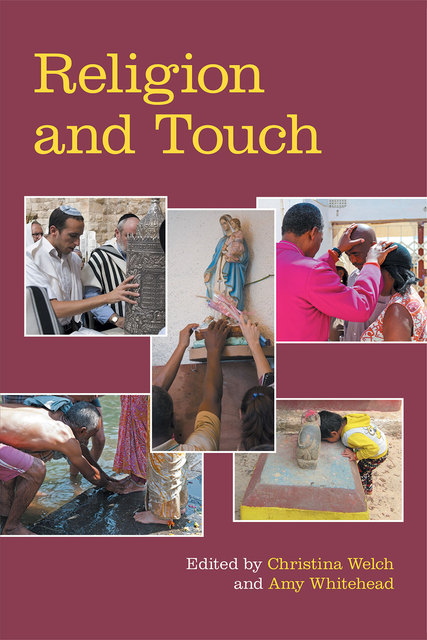Welch & Whitehead/Religion and Touch, 2. Touching Deities

Full description
Bodies and clothing are in exchange and influence each other. Guyanese Hindus describe this interrelationship of clothing and bodies by highlighting that during acts of consuming clothing—when it is worn or gifted—substances and energies are transferred between bodies and dress, creating mutual touch. This touch is facilitated through for example body fluids, which transform used or ‘touched’ clothing into a person’s material likeness. Clothes and other material objects can thus be considered as dwelling structures for substances and energies, which have a special capacity to ‘take on’ former consumers. ‘Touched’ clothes may be polluting or polluted as a consequence of their consumption however, particularly through the former consumers’ substances and energies. This potential pollution influences ritual gift exchange practices, as clothes are frequently offered to deities during Hindu pujas (ritual veneration). Besides conceptualizing the notion of touch and emphasizing the necessity of an inter-sensory approach, this chapter also discusses the role of touch in the context of transnational migration: In transnational networks, gifts of used clothing become a means of recreating and manifesting for example religious communities. Material gift giving hence reconstructs group identity and facilitates a means to literally stay in touch.
- typeImage
- created on
- file formatjpeg
- file size245 KB
- container titleReligion and Touch
- creatorSinah Theres Kloss
- isbn9781800500341 (eBook)
- publisherEquinox Publishing Ltd.
- publisher placeSheffield, United Kingdom
- rightsEquinox Publishg Ltd.
- series titleReligion and the Senses
- doi
We use cookies to analyze our traffic. Please decide if you are willing to accept cookies from our website. You can change this setting anytime in Privacy Settings.
